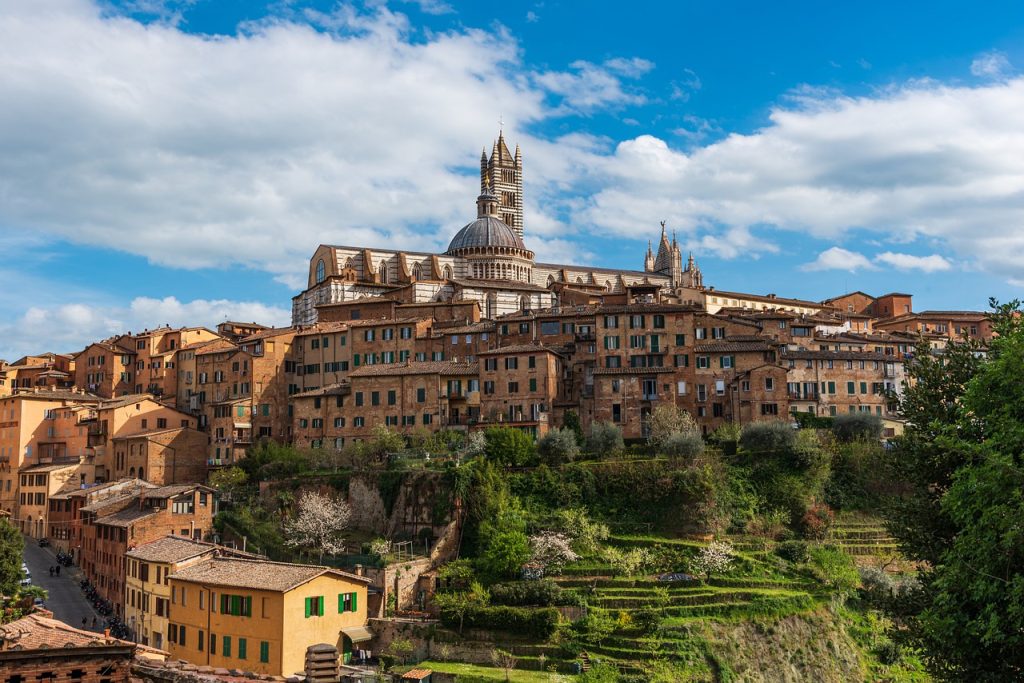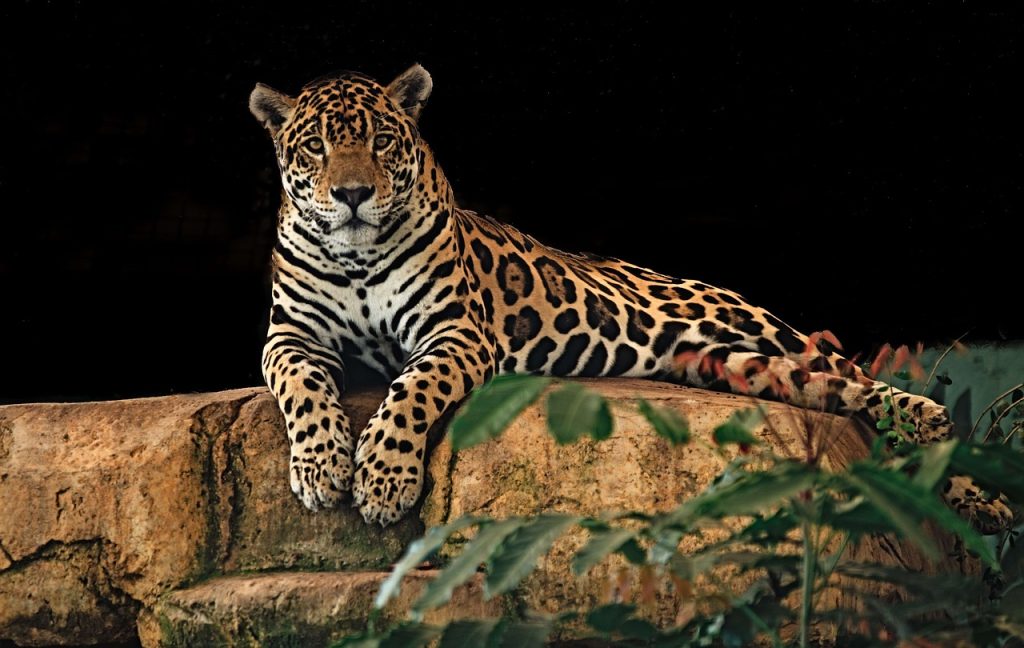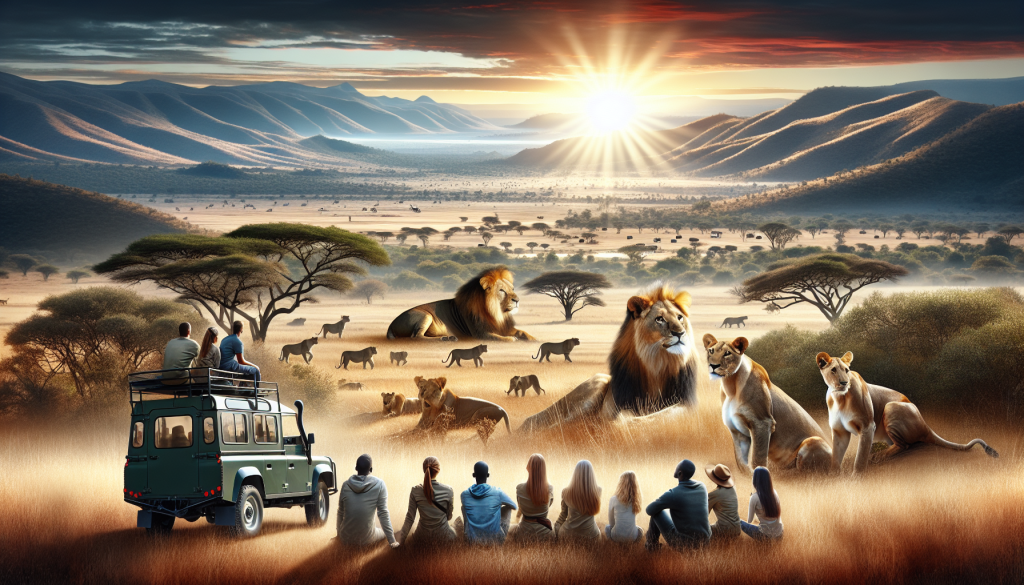When you embark on a safari adventure, you are not only indulging in a thrilling and awe-inspiring experience, but you also have the power to make a meaningful impact on the conservation of lions. As lion populations continue to dwindle, conservation tourism has emerged as a vital tool in preserving these majestic creatures. By actively participating in responsible tourism practices and supporting local initiatives, you can play a significant role in safeguarding the future of lions in their natural habitats.

Understanding Conservation Tourism
Conservation tourism, also known as sustainable or eco-tourism, is a form of tourism that focuses on supporting environmental conservation efforts. It involves visiting natural areas and wildlife reserves with the objective of learning, experiencing, and actively contributing to the protection of the ecosystem and local biodiversity. The main goal of conservation tourism is to strike a balance between promoting tourism activities and conserving the natural environment.
Objectives of Conservation Tourism
Conservation tourism aims to achieve several crucial objectives. Firstly, it seeks to raise awareness among tourists about the importance of environmental conservation and the threats faced by various species. Through education and immersion in nature, conservation tourism provides a platform for people to understand the delicate balance between humans and the natural world. Secondly, it aims to generate revenue that can be channeled towards conservation efforts, ensuring the long-term sustainability of protected areas. Finally, conservation tourism aims to benefit local communities by providing employment opportunities, supporting local businesses, and fostering cultural exchange.
Importance of Conservation Tourism
Conservation tourism plays a vital role in protecting and preserving natural habitats and wildlife, including the majestic lion. It enhances conservation efforts by generating funds that can be used for research, anti-poaching measures, habitat restoration, and community development. By choosing to engage in conservation tourism activities, tourists directly contribute to the protection of ecosystems and the survival of endangered species. Moreover, it fosters a sense of responsibility and stewardship among visitors, encouraging them to advocate for conservation even after their trip. Ultimately, conservation tourism has the potential to create a sustainable future where humans and wildlife can coexist harmoniously.
The Significance of Lions in Conservation
The Role of Lions in Ecosystems
Lions, often regarded as the kings of the savanna, play a crucial role in maintaining the ecological balance of their habitats. As apex predators, lions help regulate the population of herbivores, preventing overgrazing and maintaining diverse plant communities. Their mere presence exerts a top-down effect on the ecosystem, influencing the behavior and distribution of other species. Furthermore, lions are flagship species, attracting tourists and generating revenue that can be used for conservation efforts throughout the entire ecosystem.
Current Threats to Lion Populations
Despite their iconic status, lion populations have been rapidly declining over the past few decades. Habitat loss due to human encroachment, poaching for traditional medicine and trophy hunting, and retaliatory killings are major threats to their survival. Additionally, conflicts between humans and lions over livestock pose a significant challenge in regions where agriculture and pastoralism overlap with lion territories. These combined factors have led to a substantial reduction in lion numbers, with estimates suggesting a decline of over 40% in the last 20 years.
Importance of Lion Conservation
Lion conservation efforts are crucial not only for the survival of these magnificent creatures but also for the overall health of ecosystems in which they reside. Lions act as umbrella species, meaning their protection indirectly benefits numerous other plants and animals within their habitats. By conserving lions, we preserve the biodiversity of these ecosystems, contributing to the overall stability and functionality of natural areas. Furthermore, lions hold immense cultural and symbolic importance, representing power, strength, and wilderness. Conserving lions helps to maintain these cultural and historical connections and ensures the future generations can witness the awe-inspiring beauty of these animals.
Safari as a Conservation Tourism Activity
Introduction to Safari Tourism
Safari tourism involves traveling to wildlife-rich destinations, such as national parks and game reserves, to observe and appreciate animals in their natural habitats. Originating from the Swahili word “safara,” meaning a journey, a safari is an immersive experience that connects tourists with nature and wildlife. It provides opportunities for close encounters with magnificent creatures, such as lions, while ensuring their well-being and conservation are paramount.
Rise in Popularity of Safari Tourism
Over the years, safari tourism has witnessed a significant increase in popularity, with more and more people seeking unique and authentic experiences in nature. This rise can be attributed to several factors, including increased awareness about conservation issues, growing interest in wildlife photography and documentaries, and a desire for meaningful and sustainable travel experiences. The allure of seeing animals like lions in their natural habitat drives many tourists to embark on safari adventures, contributing to the growth of conservation tourism.
Benefits of Safari Tourism for Lion Conservation
Safari tourism brings numerous benefits to lion conservation efforts. Firstly, it generates revenue through park fees, accommodation, and other tourism-related activities, creating a sustainable funding source for conservation initiatives. These funds can be allocated to anti-poaching measures, habitat management, and scientific research. Secondly, safari tourism promotes the protection of lion habitats, as the economic value attributed to these areas incentivizes the conservation of natural resources. Lastly, by engaging with tourists, safari operators have the opportunity to educate and inspire visitors, fostering a greater appreciation for lions and encouraging their conservation even after their safari experience.
The Economics of Conservation Tourism
Revenue Generation through Conservation Tourism
Conservation tourism serves as a powerful economic driver, contributing to local economies and the sustainability of protected areas. Visitors pay park fees, accommodation charges, and engage in various tourism activities, directly injecting funds into conservation efforts. This revenue helps cover the costs of park management, anti-poaching patrols, research programs, and community development projects. The economic benefits of conservation tourism extend beyond the wildlife reserves themselves, positively impacting the livelihoods of local communities and supporting small businesses.
Funding Conservation Efforts
The funds generated through conservation tourism are crucial for financing various initiatives aimed at protecting lions and their habitats. These funds are used to support anti-poaching patrols that deter illegal hunting and trading of lion parts. They also contribute to research projects focused on lion behavior, population dynamics, and habitat requirements. Furthermore, the revenue generated helps fund education and awareness programs that engage tourists and local communities, promoting the value of lion conservation and sustainable tourism practices.
Financial Impact on Local Communities
Conservation tourism has a direct and positive financial impact on local communities surrounding protected areas. It provides employment opportunities in various sectors, such as safari guiding, hospitality, and craft-making. This income helps to alleviate poverty, reducing the reliance on unsustainable practices like poaching and habitat destruction. Moreover, conservation tourism promotes community-led initiatives that empower locals to actively participate in the conservation of lions and their habitats. By engaging in sustainable tourism practices, local communities can benefit economically while safeguarding their natural resources for future generations.

Ecotourism Practices for Lion Protection
Responsible Tour Operators
Responsible tour operators play a crucial role in ensuring the protection of lions and their habitats. They adhere to ethical standards and practices that prioritize the long-term conservation of wildlife and respect for local communities. These operators focus on minimizing their ecological footprint, promoting sustainable practices, and providing educational opportunities to tourists. By partnering with responsible tour operators, tourists can contribute to lion conservation while enjoying an authentic and responsible safari experience.
Minimizing Disturbance to Lions
When visiting lion territories, it is vital to minimize disturbance to ensure the well-being of these animals. Responsible tour operators and visitors follow guidelines that prioritize lion welfare and minimize negative impacts. This includes maintaining a safe distance, avoiding rapid or sudden movements, and refraining from making loud noises or flashing lights. By respecting the natural behavior of lions and their environment, tourists can observe these magnificent creatures without causing undue stress or disruption.
Promotion of Sustainable Practices
Ecotourism practices that contribute to lion protection encompass the broader concept of sustainability. This includes supporting eco-friendly accommodations that prioritize renewable energy, waste management, and responsible water usage. Additionally, tourists can choose to purchase locally sourced and sustainable products to support local communities and reduce their carbon footprint. By actively participating in sustainable practices, tourists contribute to the long-term conservation of lions and their habitats.
Conservation Initiatives by Safari Operators
Partnerships with Conservation Organizations
Safari operators play a vital role in lion conservation by partnering with local and international conservation organizations. These partnerships allow for the exchange of knowledge, expertise, and resources that are crucial for implementing effective conservation strategies. By working together, safari operators and conservation organizations can fund research projects, implement anti-poaching measures, and develop sustainable tourism practices. Through these collaborative efforts, the survival of lions is prioritized, ensuring their protection for future generations.
Investing in Anti-Poaching Measures
Safari operators recognize the critical need for anti-poaching measures to protect lions from illegal hunting and the illegal wildlife trade. They actively invest in anti-poaching patrols, training rangers, and implementing security measures within protected areas. By taking a proactive stance against poaching, safari operators contribute to the overall reduction of threats faced by lions. Furthermore, these efforts enhance the safety of tourists and provide them with peace of mind during their safari experiences.
Supporting Local Community Projects
Safari operators understand the importance of involving local communities in lion conservation efforts. They support community-led projects that focus on sustainable development, education, and alternative livelihoods. By empowering local communities, safari operators create a sense of ownership and pride in the conservation of lions and their habitats. Additionally, by supporting local businesses and initiatives, safari operators ensure that the benefits of conservation tourism directly reach those who reside in and around protected areas.

Research and Monitoring in Safari Reserves
Importance of Scientific Research
Scientific research is vital for understanding lion behavior, population dynamics, and the ecological interactions within their habitats. Safari operators actively contribute to research efforts by providing access to the animals and their territories. Research projects focus on themes such as lion movements, feeding habits, and mating behavior. By gathering this valuable information, scientists can better understand the needs and challenges faced by lion populations, enabling the development of targeted conservation strategies.
Tracking Lion Populations
Through research and monitoring, safari operators help track lion populations in safari reserves. This involves collecting data on the size, structure, and distribution of lion prides. By monitoring these populations over time, scientists can detect population trends, assess the impact of conservation efforts, and identify potential threats. This data is crucial for decision-making, resource allocation, and the implementation of effective conservation strategies aimed at protecting lion populations.
Understanding Lion Behavior
Another essential aspect of research and monitoring in safari reserves is the study of lion behavior. By closely observing these magnificent creatures, scientists gain insights into their social structure, hunting techniques, and breeding patterns. This knowledge helps inform conservation efforts, as understanding the behavior of lions allows for the development of strategies that minimize human-wildlife conflict and protect critical habitats. By unraveling the mysteries of lion behavior, scientists and safari operators contribute to the long-term survival of these iconic predators.
Conservation Education and Awareness
Educational Programs for Tourists
Conservation education and awareness programs play a key role in promoting the importance of lion protection among tourists. Safari operators and conservation organizations actively engage visitors through guided nature walks, informative talks, and interactive activities. These programs focus on raising awareness about the threats faced by lions, the ecological significance of their habitats, and the role that tourists can play in their conservation. By educating tourists, safari operators empower them to become ambassadors for lion protection, spreading the message globally.
Engaging Local Communities
An integral part of lion conservation is engaging with local communities residing in and around safari reserves. Safari operators collaborate with community leaders, schools, and organizations to develop educational programs that emphasize the value of lions and the benefits of conservation tourism. By involving locals in these initiatives, safari operators foster a sense of pride and stewardship, ensuring that the conservation of lions is a shared responsibility. Local communities become key stakeholders in lion protection, contributing to the sustainability of both the ecosystem and their own livelihoods.
Promoting Global Awareness
Conservation education and awareness programs extend beyond the confines of safari reserves. Safari operators leverage technology, social media, and traditional media channels to reach a global audience. By sharing stories, photos, and videos showcasing the beauty and importance of lions, safari operators raise awareness on a broader scale. This global awareness creates a ripple effect, inspiring individuals and communities worldwide to take action by supporting lion conservation efforts and choosing responsible tourism practices.

Community Involvement in Lion Protection
Incentivizing Conservation for Local Communities
Community involvement is essential for the long-term protection of lions and their habitats. Safari operators work closely with local communities to develop incentive-based programs that reward conservation efforts. This can involve providing financial incentives to community members who play an active role in protecting lions or supporting projects that promote sustainable livelihoods. By incentivizing conservation, safari operators encourage local communities to become stewards of the land and actively participate in lion protection.
Training Local Guides and Trackers
Safari operators recognize the importance of developing local expertise in lion conservation and wildlife guiding. They invest in training programs that provide local guides and trackers with the necessary skills and knowledge to ensure the safety of tourists and the well-being of lions. By empowering local communities through training and employment opportunities, safari operators contribute to the ecological sustainability of protected areas while promoting cultural preservation.
Community-Led Initiatives for Lion Conservation
Community-led initiatives are vital for the success of lion protection efforts. Safari operators facilitate and support projects initiated by local communities, helping them develop sustainable livelihoods that benefit both humans and wildlife. These initiatives can include community-run conservancies, wildlife monitoring programs, or the establishment of cultural tourism ventures. By actively involving local communities in lion conservation, safari operators ensure that the benefits of tourism directly contribute to the well-being of the people and the preservation of lions.
Conclusion
Conservation tourism offers a unique and rewarding opportunity for individuals to contribute to the protection of lions and their habitats. By engaging in safari tourism activities, tourists directly support conservation efforts through funding, education, and awareness. Safari operators play a crucial role in promoting responsible tourism practices, investing in research and monitoring, and collaborating with conservation organizations and local communities. Through these collective efforts, we can ensure the long-term survival of lions, promoting a future where humans and wildlife can coexist harmoniously. So, when planning your next safari adventure, remember that your journey can make a significant difference in lion protection and the conservation of our natural world.


